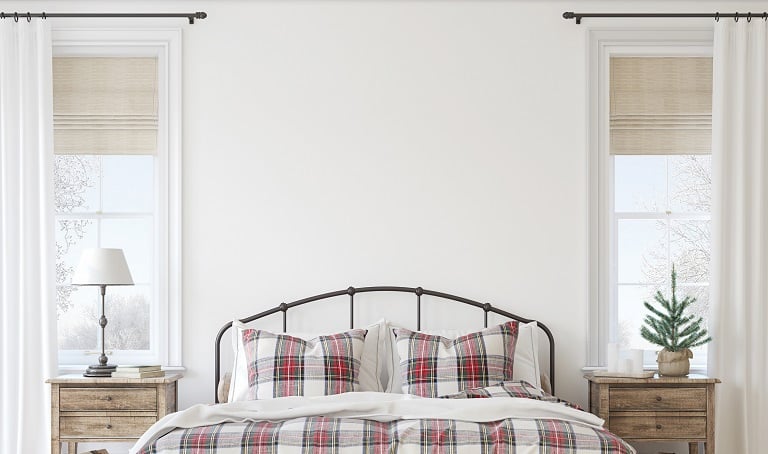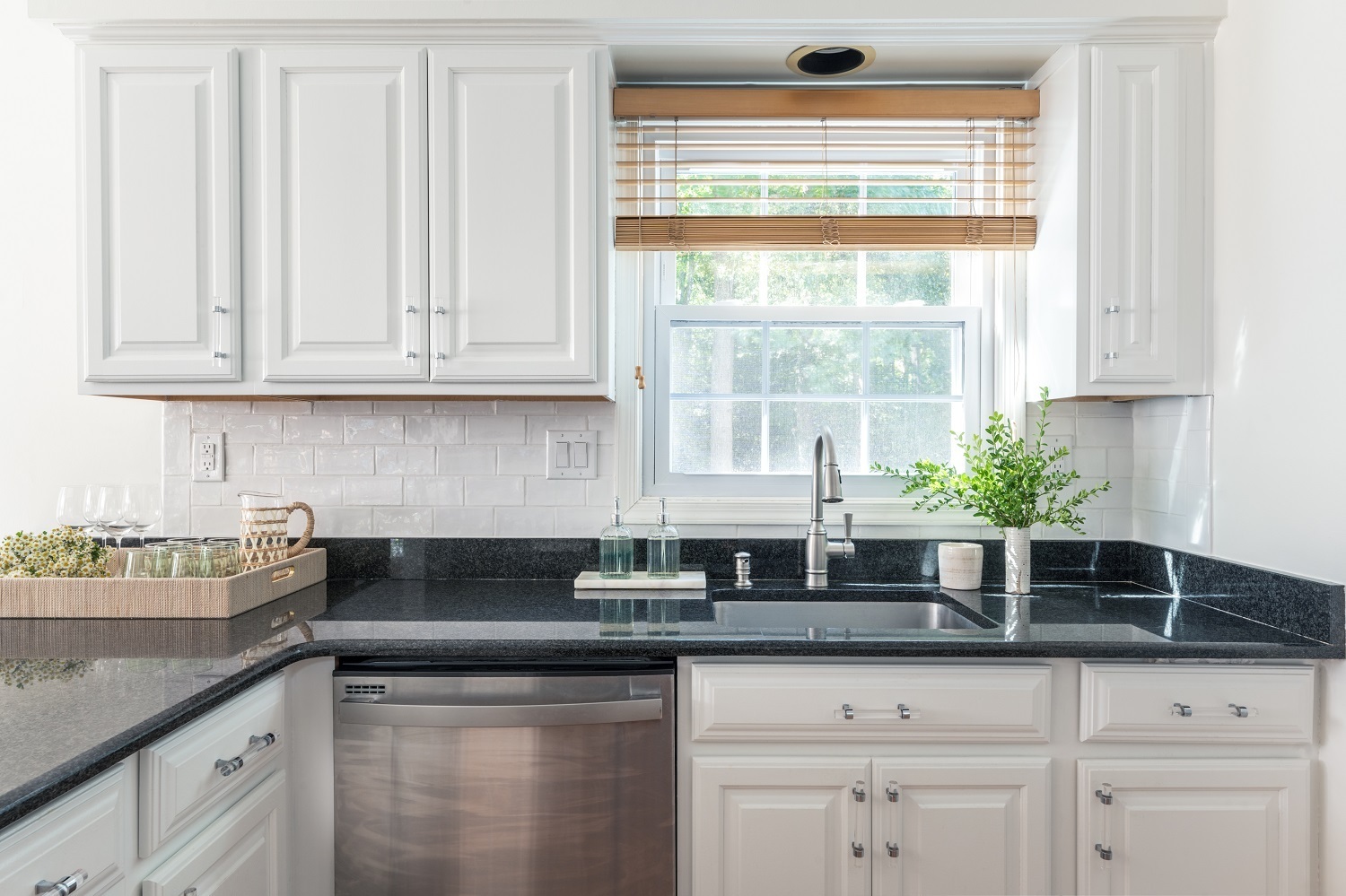What Permits Do Homeowners Need for Home Additions?
If you’re building a home addition, you’ll need the proper permits before you begin


Building permits range from $150 to $7,500.
Average permitting costs are around $1,300 nationally.
If you’re making significant changes to your home, you need to have permits.
If your house is feeling a bit too close for comfort, you might consider building a new addition onto the old homestead. But expanding the family digs is about more than lumber, nails, and sweat equity. You’re also going to need the proper permits.
The type of permitting you’ll need, though, will depend on several factors, including your location and the kind of project you have in mind. And that means that the costs to secure the necessary building permits will vary widely, ranging from as little as $150 for modest projects in a small town to as much as $7,500 for more ambitious projects in larger cities. Average permitting costs are around $1,300 nationally.
Why Building Permits Matter
If you’re making significant changes to your home, you need to have permits, as well as all the proper building inspections during the process and at the project’s completion. In addition to the traditional building permit, which gives you and/or the contractor the permission to build or add onto the home, each specialty trade, such as HVAC, electrical, or plumbing, has its own permit. Before building a home addition, brush up on the required permits.
If the system seems like a confusing web of applications and inspections, you’re right. That’s why we don’t recommend doing it yourself. Keep in mind that “the one who pulls the permit is responsible for the work.”
That means if you pull the permit yourself, or if your contractor pulls it in your name, then YOU are responsible for the work, even if you didn’t do it. This leaves lots of room for error on the contractor’s part, and some contractors may not accept responsibility for mistakes.
For that reason, you should hire an experienced, locally licensed contractor who does quality work and knows the system. The two keywords here are “experienced” and “local.”
Just as a certified public accountant or a lawyer has to pass an exam and prove their qualifications, a properly licensed contractor has to have certain qualifications to pull a permit. These include having a master technician on the team and meeting selected screening qualifications.
Local means hiring a contractor who works frequently in your municipality. Permit and building requirements vary from town to town.
What Permits Are Required for Residential Additions?
If your house is feeling a bit cramped and you’re looking to expand your home’s footprint, you’re first going to need to get the proper clearance from your local authorities.
You’ll need to make sure you pull the proper building permits for your home addition.
Fortunately, it’s not that hard to get the go-ahead on your dream project. Permitting, above all, helps to ensure safe, legal, and quality construction—and that the addition rests entirely on your own property. (No squabbling with the neighbors over where your property line ends and theirs begins!).
Zoning
When you’re planning to add on to your home, one of the first things you’re going to need to confirm is zoning for the kind of construction you want. Some cities and municipalities, for instance, will limit the amount of square footage permitted on a single lot. Others may restrict the number of detached buildings allowed on the same parcel of land. And still others will specify that only certain types of constructions are allowed within that zone.
So you should check with your local officials before you even begin construction to make sure your project meets your property’s zoning requirements. You might be required to purchase a purchase a zoning license to go ahead with the expansion, which will usually involve additional steps, such as site inspections to ensure that your land’s water, septic, and electrical systems can safely support the new addition.
Plan Review
After you’ve ensured your project meets zoning requirements, you’re going to need to submit a building plan for officials to conduct a plan review. This will generally include a drawing of the proposed addition, as well as details regarding construction. Again, this is all about safety and legality.
Inspectors consider issues such as structure, foundation, and location. They’ll want to ensure there is proper clearance between the new addition and other structures to minimize fire risk. And they’ll also want to ensure the building plan works for the addition’s intended purpose. For instance, an attached bedroom with a half-bath will need to meet different standards than a detached guest house complete with a kitchen, bathrooms, and gas heating.
Post-Construction Inspections
The permitting process doesn’t end once you’ve received clearance to start your project, though. At the very least, your town or municipality will require a post-construction inspection to ensure that the work went as planned and according to the required health and safety standards. Generally, you can get this final inspection done for between $200 and $500.

Why Permitting Matters
It might seem like a lot of legwork to make sure you have the proper permits in place before, during, and after construction. But taking care of the permits right away can save a lot of hassle down the road. Unapproved constructions, or work completed by contractors who don’t have the proper permits, can actually decrease the value of your home.
Not only that, but because your property taxes are generally based on the value of the improvements made to the land, failure to get the appropriate permits can leave you on the hook for unpaid property taxes later on.
So, as you can see, permits can have a big impact on your finances if you ignore them. For example, if you don’t have an electrical permit on file for any electrical modifications in your home, you couldn’t collect insurance if the cause of a fire is determined to be non-permitted work. Permits help when it’s time to sell a home, since potential homebuyers will want to be sure the appropriate permits exist for any modifications or additions to the home.
Most importantly, building codes and permits are put in place for your health and safety. They set forth minimum requirements for the types and sizes of materials to be used to meet safety standards.
These are all really important reasons why the permitting process works in your favor. If you’re hiring a contractor to build your addition, then ensuring that your builder is working with the necessary permits is a pretty great clue that they’re a legit company doing quality work. Win-win!
Example: Permitting for a Kitchen Remodel
You don’t have to add on to your home or construct an entirely new building on your property to require permits, though. In some cases, even an extensive remodelling project will require permitting.
This is especially true of kitchens and bathrooms, where the renovation may place significant demands on your gas, electrical, water, and/or plumbing systems.
Below are some examples of the kinds of permits that might be required for an extensive kitchen remodel:
Structural: This is necessary if you’re making major modifications that include blowing out walls or building new ones. You don’t need a permit if you are just changing the kitchen cabinets.
Electrical: Even if you’re just moving one plug or installing any new fixtures, you need an electrical permit. If you’re doing an electrical upgrade, make sure you bring everything up to current building code standards.
Plumbing: If you are adding a redesigned laundry room that includes a new location for the sink, you will need a plumbing permit. No permit is needed if the location doesn’t change.
Gas permit: If your new stovetop has a gas grill, you will need a gas permit to run a new gas line. If it’s electric, it will fall under the electrical permit.
Local permits: You will need any other permits required by your township or municipality.
Understanding Home Addition Permits
Dealing with paperwork isn’t the most exciting way to spend a weekend. But the permitting process isn’t just a legal requirement—it’s also great protection. Permits will help ensure your cozy new bedroom or inspiring detached artist’s studio is safe, solid, and inviting for years to come!





- Bathroom Remodeling
- Kitchen Remodeling
- Shower Installation
- Stair Installers
- Bathtub Installation
- Shower Door Installers
- Kitchen Design
- Bathroom Design Companies
- Storm Shelter Builders
- Pre-Made Cabinets
- Kitchen Refacing
- Bathtub Replacement
- Ceiling Tile Installation
- Suspended Ceiling Companies
- Residential Designers
- Stair Builders
- Remodel Designers
- Shower Enclosures
- Home Renovations
- Kitchen Renovations
- Garage Remodeling
- Grab Bar Installation
- Walk-In Tub Installers
- Tub to Shower Conversion
- Balcony Contractors









